Trigger warning: this story contains mention of a fatal accidental overdose
~~~~~
UPDATE 4/19 @ 5:55 p.m. : In an email after the story was published on Friday, Marchando said she retracted most of her statements to emphasize the proposed chapter’s goal of promoting wellness and inclusivity.
~~~~~
The Allegheny Student Government heard a wide-ranging presentation on a potential drug policy group on campus at its General Assembly on Tuesday, April 16. Cat Marchando, ’26, a neuroscience major, told ASG that she hopes to establish an Allegheny chapter of the international nonprofit Students for Sensible Drug Policy.
SSDP advocates for “harm reduction,” an approach to preventing substance abuse that aims “to get help with people who are struggling where they need it,” Marchando said.
As an example, she pointed to fentanyl, specifically stories of a three-year-old overdosing on the synthetic opioid after getting into her parents’ substances, and police officers overdosing while handling the drug. This can happen, Marchando said, because fentanyl can be absorbed “transdermally” — through the skin.
“There’s people out there, very bad people that can put fentanyl on dollar bills, on your car, handle, on a gas station pump, to essentially make you unconscious for what they want from you,” Marchando said. “This is something that we shouldn’t be scared of. This is something that we should fight back against, and take action on and speak about here at Allegheny.”
However, medical professionals have pushed back on the idea that touching fentanyl can cause negative effects or overdose; in an October 2022 Q&A with U.C. Davis Health, Dr. Daniel Colby wrote that the only confirmed cases of transdermal fentanyl exposure happened through doctor-prescribed skin patches.
“You can’t overdose on fentanyl by touching a doorknob or dollar bill,” wrote Colby, who studies substance use disorders.
Marchando said that SSDP neither condones nor condemns drug use on college campuses.
“We’re trying to say that we need to maximize wellness on campus in any way, form that we can,” Marchando said. “We need to build a soulful community that’s really emphasizing that we are all human.”
Marchando’s 20-minute presentation covered a number of topics relating to harm reduction, including the science of addiction and a proposal to add a module on overdose education to already required drug and alcohol training for incoming students. Marchando asserted that such a module would have saved the life of Cinna Krushel, ’27.
“If you’re a person that cares about others and you see this (training), you can now know how drugs interact, what to do if someone’s overdosing on something,” Marchando said. “We all got an email last semester about a freshman sadly passing unintentionally. If someone was there, if someone knew how to do this, we would have another life.”
Krushel died in mid-September, a few days after being rushed to the hospital following an accidental overdose caused by a mixture of over-the-counter medication, including caffeine; antihistamines used in allergy medicine; synthetic codeine, a pain-relieving ingredient in adult cough syrup; and mitragynine, the active ingredient in a pain-relieving plant called “kratom.” Call logs showed that emergency services arrived on scene seven minutes after 911 was called, with Krushel transported to the hospital 24 minutes later.
In a follow-up email Wednesday evening, Marchando clarified that she thought that Krushel’s passing may have been preventable with additional resources, but those resources would not guarantee a different outcome.
“if we had the proper education, if narcan was accessible, and Cinna knew not to mix substances, she may not have accidentally overdosed,” Marchando wrote in the email, referring to a brand-name version of opioid-overdose antidote naloxone. “this is a sad topic and i get you’re writing the newspaper, but this topic isn’t black and white, im so sorry if i misspoke. people knew her, and her story is important, but we cannot change the past.”
In an email Friday afternoon after the story was published, Marchando retracted most of her presentation. Instead, she emphasized the quotes that reflected the club’s focus on wellness and inclusivity.
During the GA, Marchando also spoke about the types of substances students use — and noted that the list did not include many opioids that naloxone works against.
“It’s about alcohol, it’s about cannabis, it’s about nicotine and it’s about cocaine,” Marchando told ASG. “Cocaine is used on campus and it’s something that, whether we like to talk about it or not, it’s probably the biggest issue that needs to be addressed immediately, because people cannot buy cocaine from a dispensary. People buy cocaine from the street. And if they don’t take a fentanyl test strip to test their drugs, what can happen?”
In her follow-up email, Marchando declined to comment on how she knew cocaine was being used on campus.
“some students are using it,” Marchando elaborated. “its in certain groups. you and the campus do not deserve to know how i know, because it was in the confidence of someone relaying their substance abuse to me. i have met so many people in different situations that feel im a trusting person to keep their use anonymous.”
In an interview following the GA, Dean for Student Life Trae Yeckley said they were not aware of any reports or investigation into cocaine use on campus.
“That doesn’t mean that it’s not happening on campus,” Yeckley said. “But what I can say is it has not — I was also kind of taken a little bit aback by that statement.”
In addition to speaking about drug use on campus, Marchando also criticized some aspects of the college’s response to reports of marijuana use in residential halls.
“Addressing situations through email with like, ‘Hey there’s cannabis use in Edwards and this is federal law and this is what will happen to you if you continue to use cannabis’ only incites fear, stress and spite into people,” Marchando told ASG. “If someone’s a hard drug user and you tell them to stop, they’re going to say ‘F— you,’ they’re going to say ‘I’m going to do it more, I’m going to hurt other people more because you are policing me.’ The second you are done policing people and you tell them, ‘This is what will happen, truthfully, if you are caught using drugs,’ they’ll say, ‘Hey, I can reach out to these people because they’re concerned and they care and they’re not going to hurt me.’”
Yeckley — who oversees student conduct — said after the meeting that it was “not uncommon” for their office to send emails to floors or halls after an increase in fire alarms or complaints about drug use.
“There are things, by federal law, that we have to do in order to ensure that we keep our funding,” Yeckley said. “I have seen, any time that I’ve sent out that email, we do see a decrease in complaints or noticeable smells of marijuana. It doesn’t mean it’s not happening in the building … but it does, in my experience in this position, it does show that at least the students are reading that and sometimes students aren’t quite aware of how much the smell of smoke travels, or the impact that it can have on the neighbor who said he has asthma.”
More broadly, Yeckley said that Allegheny’s conduct policies are based on “transformative justice” and focus on conversations about why a student is using drugs and provide resources for support.
“You may end up on a warning, you may have to write a paper, but for the most part, it is a ‘What’s going on, why is it going on, and how can we help you?’” Yeckley said.
Marchando’s proposal is not to create a new independent group to serve as the college’s chapter of SSDP, but to house programming and outreach within an existing club — though this proposal was not up for an ASG vote.
“A chapter on campus through the Neuro Club is what I would love for you guys to approve,” Marchando said. “We really need an open and honest discussion about drug use in a safe, judgment-free space, whether that be on campus, off campus, wherever.”
During a brief Q&A session following the presentation, ASG Senator and Vice President-elect Ray Colabawalla, ’25, asked if Marchando was looking for specific funding from the student government. He also asked if Marchando wanted to see more class events like one hosted in early November by the junior class senate.
“More of those but more talk about what truly happens,” Marchando replied. “More talk about the alcoholism culture, whether it be in fraternity-sorority culture, or in the other half, and we’ll talk about the division on campus specifically. Everyone knows there’s a divide between certain people here and the other people, and we need to stop thinking of people as other.”
ASG’s final General Assembly — where next year’s president and vice president will be sworn in and the Senate is expected to hear a proposal for a major project — is set for 7:30 p.m. on Tuesday, April 23, in room 301/302 of the Henderson Campus Center.



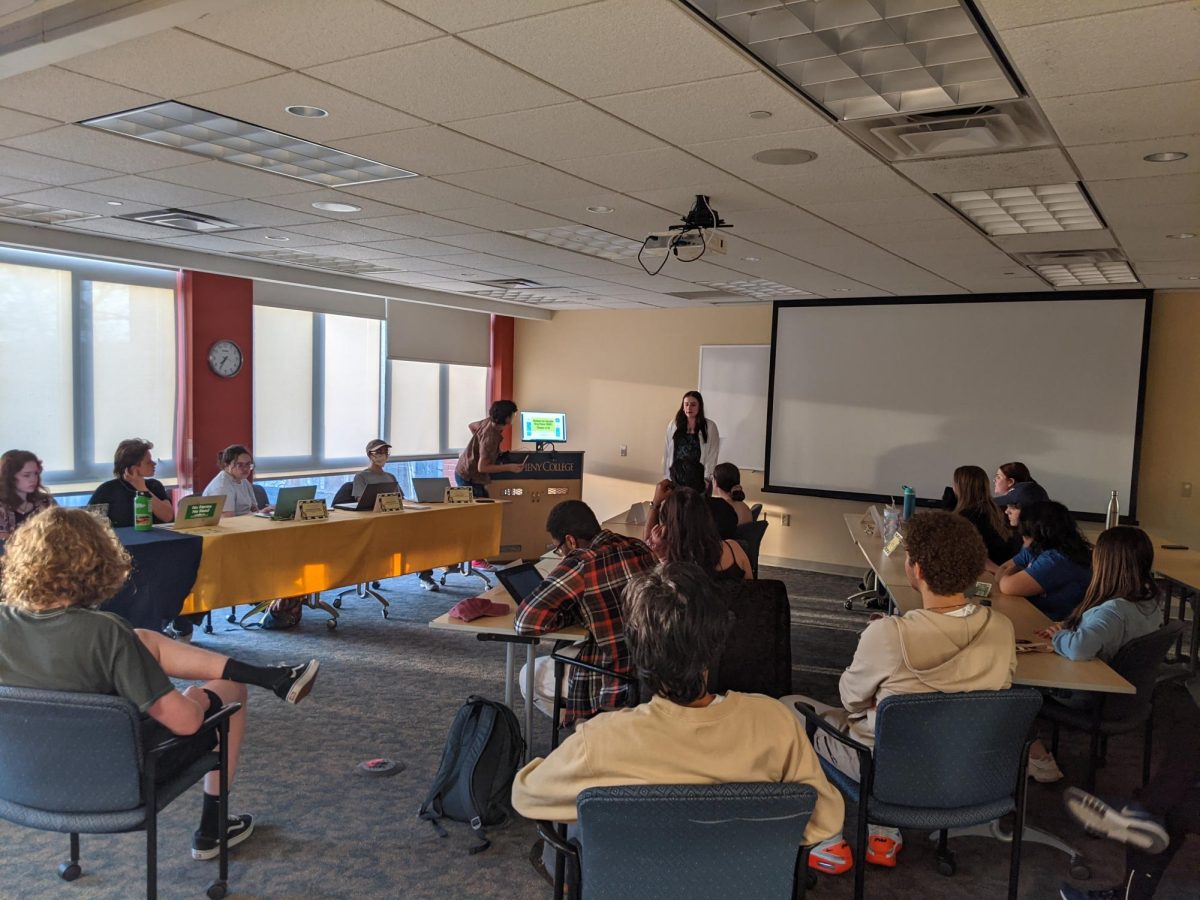



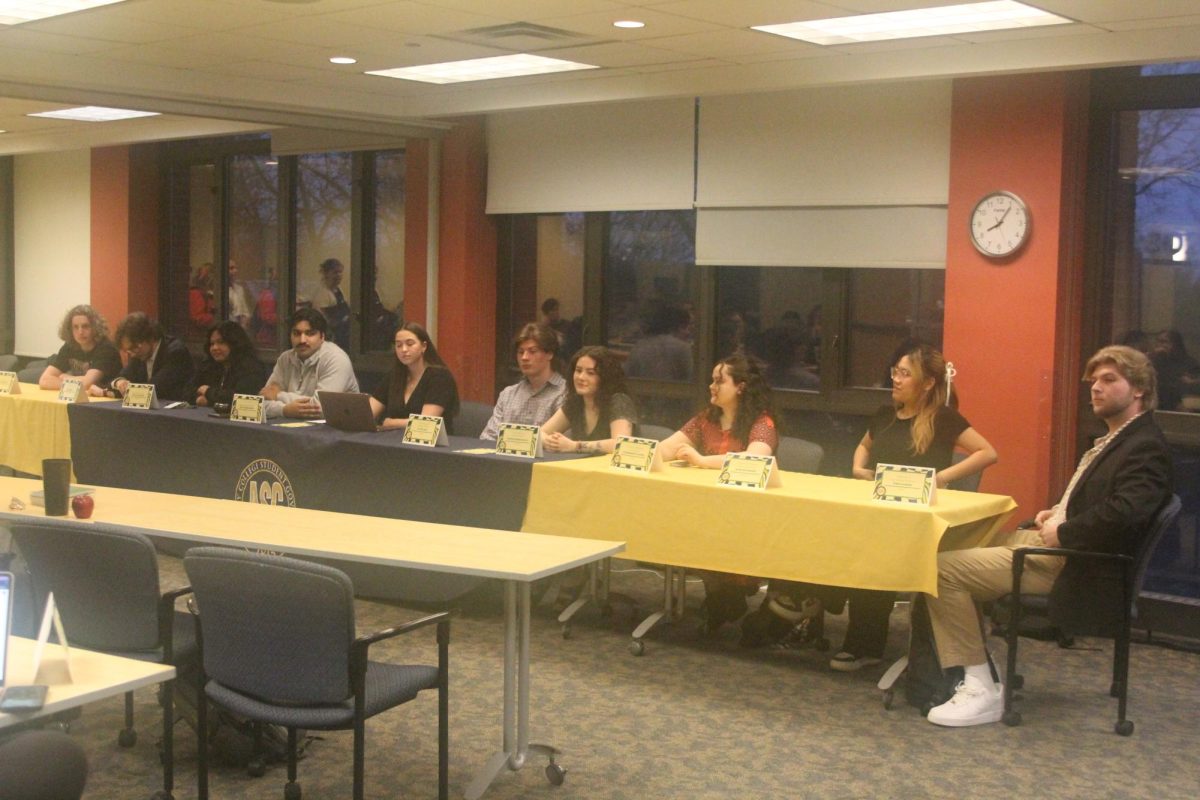
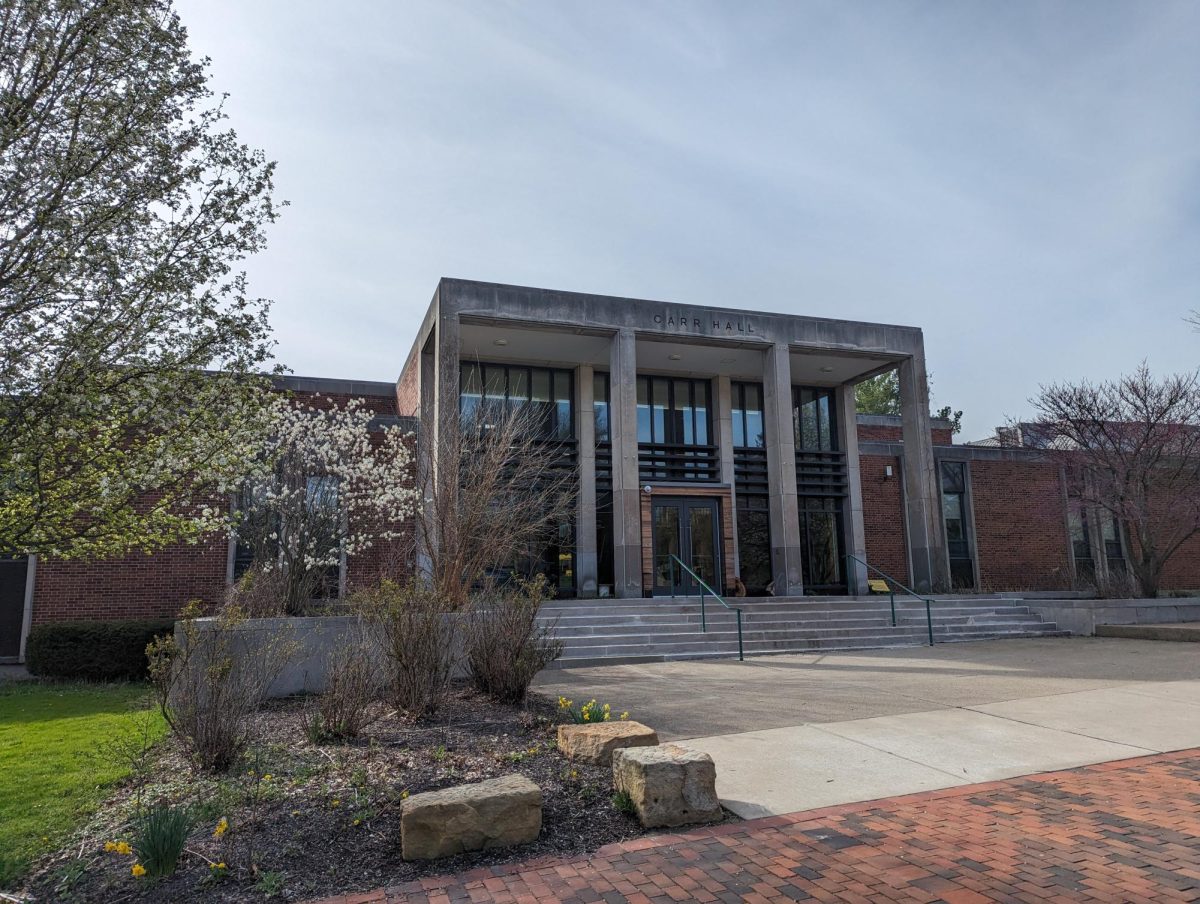



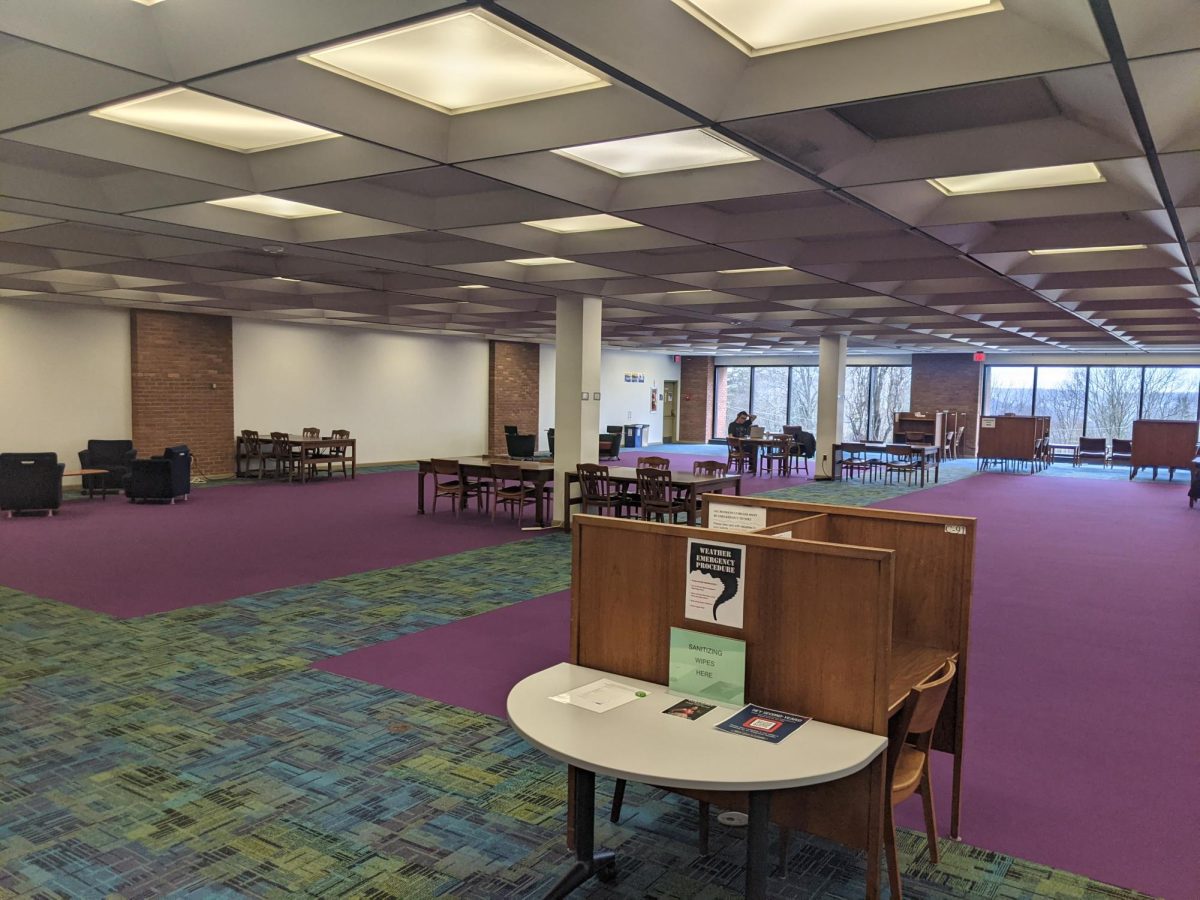
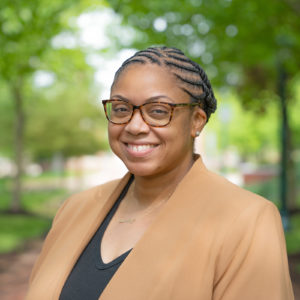

Current Student • Apr 19, 2024 at 10:42 am
Genuinely a vile thing to say about a teenager who unfortunately lost her life. What a lack of care for Cinna’s friends and family. This chapter sounds like a good idea, but it shouldn’t be run by a student who reeks of a superiority complex. I’m glad others seem to see her as a trusting source to talk about substance abuse, but I would never think of going to someone so quick to blame a freshman’s death on others.